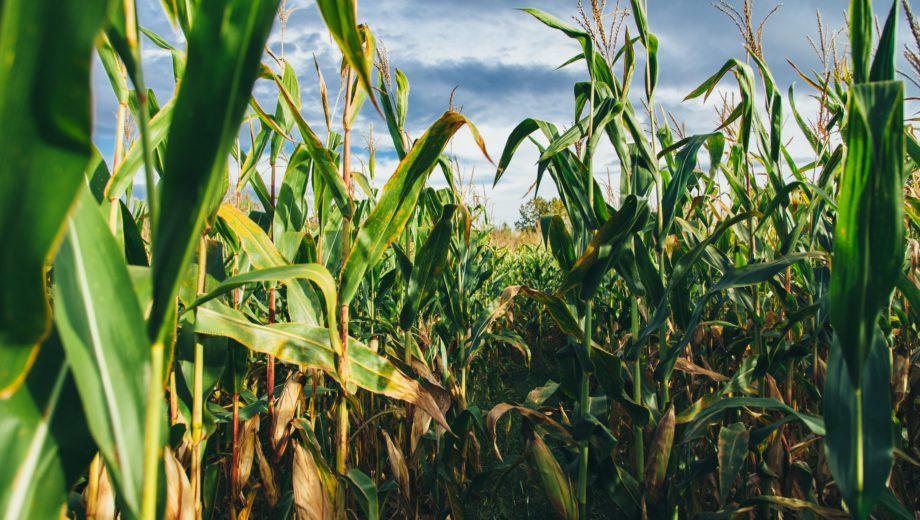
Farmers in Eastern Nebraska adopt regenerative practices through project led by PepsiCo, Cargill, and Bayer
Across the flat plains and rolling hills of Eastern Nebraska, Midwest Row Crop Collaborative (MRCC) member companies, farmer support organizations, and growers are seeding new ways to scale regenerative agriculture. We know healthy soils that protect water quality and address climate change are necessary to support farm families now and into the future. At the same time, farmers face a range of barriers when adopting regenerative practices like nutrient management or cover crops.
Planting cover crops can include significant upfront costs that not all farmers are able to absorb and require specialized knowledge and technical expertise. At the other end of the agricultural supply chain, companies are seeking new ways to address the environmental impacts of materials they source for their products.
To respond to this need, PepsiCo, Cargill, and Bayer are working to remove barriers to regenerative practice adoption and address sustainable sourcing challenges in tandem. They have established partnerships with Practical Farmers of Iowa and Sustainable Environmental Consultants to engage directly with farmers, collect data, and analyze on-the-ground results. Together, these companies and organizations are providing financial incentives and technical support to help farmers reduce fertilizer use and plant cover crops in the spring and fall.
Reducing barriers for farmers
In the pilot phase of this project, Cargill identified farmers selling corn to its facility in Blair, Nebraska who were interested in planting cover crops and connected them to Practical Farmers of Iowa (PFI). Cargill, Bayer, and PepsiCo provided funds to PFI to share the cost of practice adoption directly with farmers.
Cost share options for farmers included:
- $10 per acre of fall cover crops planted for up to 200 acres.
- $15 per acre of summer cover crops planted for up to 100 acres.
- An option to receive an additional $10 per acre if farmers if nitrogen use was reduced by 40 pounds per acre.
In addition to managing the cost share program, PFI provides technical assistance to farmers on cover crop selection planting, and termination; fertilizer management; and other practice implementation questions.
“We’ve learned that recruiting farmers to participate is most successful when they are personally engaged by a trusted source,” said Tai Ullmann, Global Sustainability Manager for Cargill. “PFI and Sustainable Environmental Consultants are these trusted partners who can answer questions and provide support at the farm level.”
By providing farmers with economic analyses and cost share incentives for their initial use of cover crops and nutrient management, the program intends to help farmers with the up-front costs so they can employ these practices and improve their environmental impact without cost share in future years.
Meeting supply chain sustainability needs
Companies are facing new pressures to reduce greenhouse gas emissions (GHG) within their own operations and across their supply chains. As part of this project, Sustainable Environmental Consultants collect and aggregate data from the field to analyze water quality benefits, soil erosion reductions, and GHG emissions and sequestration. As part of this process, farmers receive individual reports for their own farms.
Bayer, Cargill, and PepsiCo also receive aggregated data from all participating farms to support their own sustainability reporting needs and requirements. Member companies worked together to ensure the project design met their needs for SBTi accounting and full scope 3 emissions reductions.
“Reducing GHG emissions across the value chain is a huge challenge for all companies, especially in agriculture. By working together across the supply chain, we were able to design this project to support farmers with a consistent and simple message while trying to shift the system in a landscape, said Margaret Henry, Director of Sustainable Agriculture, PepsiCo. “It’s really a win-win-win for the supply chain, the environment, and the farmers.”
The first cover crop planting began in fall 2020. Forty-eight farmers enrolled in the first year of the program, far exceeding its year one goal of 25. During the first year, participating farmers planted nearly 15,000 acres of cover crops, 52 percent of which were supported through cost share. Additional metrics will be available in future years as more data is collected
To learn more about the Midwest Row Crop Collaborative’s efforts to scale regenerative practices, read our freshly published 2030 goals and recently released Impact Report.